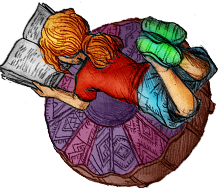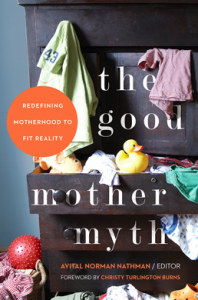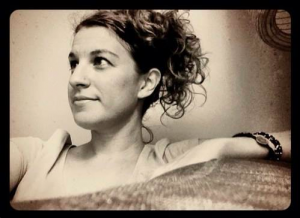Motherhood did not arrive easily. As one of the early IVF pioneers in the 80’s, I fought tooth and nail for it. It took many years, many surgeries, many assisted reproductive technologies, and a whole lot of grit. In 1991 my daughter Charlotte was born, and she was a miracle, as all of our children are. But the truth is that I always felt I had tempted fate—in getting pregnant at all, in delivering a healthy baby after a high-risk pregnancy and difficult labor, and in almost losing her shortly after she was born…but bringing her home from the NICU a few days later with her doctors’ blessings.
With each instance of overcoming the odds, my faith in myself ironically weakened, and my superstitious fear that I was never meant to be a mother, and would therefore inevitably not manage the job, grew stronger. I somehow felt that the stakes were higher for me to prove I was a good mother, because I had been given a chance that some of the friends I made along the way were never given.
So I hid my fears and my insecurities. There were very few parenting books back then. No blogs. No Internet. No easy ways to connect with other mothers or hear their stories, beyond those moms who were friends in my own town and to whom I wanted to appear breezily confident. Thus I did not reach out enough for support when my daughter cried inconsolably of colic for week after week and in my deranged, sleep-deprived state I shook her one night—just a little—until I caught myself, sobbing, whispering, “so that’s how it happens.” Child abuse. It happens when a mother is exhausted to the point of delirium and has isolated herself. I began a habit of calling the nurses in labor and delivery at Brigham & Women’s Hospital, needing so desperately to have someone to talk to in those wee lonely hours, to seek information or comfort or some critical moment of distraction from self-doubt.
Was I a Good Mother? Am I now? Are you? What does it even mean?
So much has changed for mothers since I became one, and since all the mothers who came before me had their children. For better and for worse, in perhaps equal measure, we consume and shape today’s culture for moms through social media with our blogs and our Pinterest boards and the Facebooking of our lives and our children’s lives…what we wish to publicly portray of them, anyway. We construct and feed the myth that there is a single definition of what a good mother is, a foolproof recipe for success, a surefire way to win the approval of others. The Good Mother Myth.
I read this fabulous new anthology of 35 essays, edited by my friend and colleague Avital Norman Nathman of the popular blog The Mamafesto, and found the support I’d needed over 20 years ago. What a gift for today’s moms. These stories, by a diverse group of mothers, explores the archetype of the mythical “good mother” and reveal, through collective narrative, some of the ways in which today’s motherhood culture can make women feel pressured, confused, isolated, and even burdened. I found the essays to be in turns uplifting and sobering, funny and saddening—and usually in some way relatable. There is profound validation among these pages, whether you work inside or outside the home, whether you are healthy or in some ways physically or mentally health-challenged. The authors represent different races, religions, classes, and sexual orientations. The monolithic construct of the good mother as white, middle class, straight, and June Cleaver-esque is blissfully nowhere to be found here.
As I write in Her Next Chapter, I have huge concerns about the parenting culture we now have, especially for mothers. Mothers are under constant media bombardment. You cannot open a magazine or browse articles online or tune in to Facebook without reading some version of how mothers are doing it wrong. Or can’t have it all. Or should have it all. Or are not following the “right” method for potty training or breastfeeding or violin instruction or fill in the blank. Back when mothers raised children in literal villages, without the Internet but with grandmothers and aunts and sisters and village elders to guide and support them, were they better able to develop confidence in themselves as parents who could eventually rely on their own methods? And is methods just another word for instincts and communal knowledge?
One of the ways in which The Good Mother Myth positively addresses the particular challenges of modern motherhood is by setting an example of what Avi calls “intentional community.” It’s the same idea as what I call “villages.” They are the sisterhood of your own design, and the tent that you wrap around yourself when the world can feel too demanding, or worse, indifferent. By choosing strong allies, you can inoculate yourself—at least somewhat—from the mompetitors down the street, and a shaming, judgmental media culture.
Reading The Good Mother Myth is a welcome reprieve from the anxiety that can be caused by continually striving for perfection. Like Avi and like me, many of the contributing authors have created their own intentional communities for mothers online, and these are places where mothers can go to find virtual companionship and support to supplement what they can garner from their real-life families and communities. We all need that space to share and question and cheer each other on in this extreme sport called parenting.
I am so pleased to host a giveaway for one signed copy of Avital Norman Nathman’s The Good Mother Myth. Enter the contest via Rafflecopter below. The contest will run this entire week, and I’ll announce a winner on Monday, July 14th. Good luck, and please spread the word!



